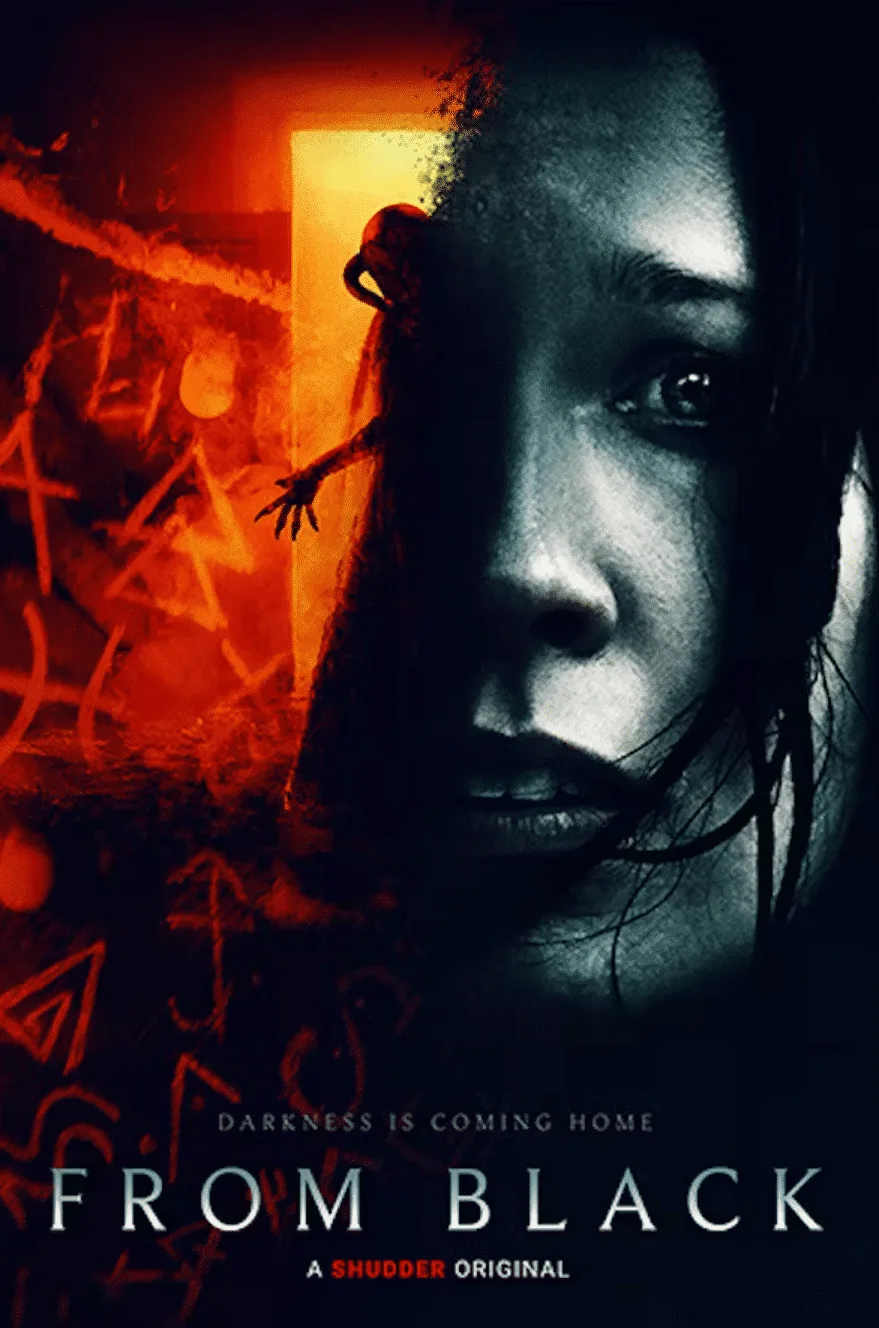
By Gabby Foor
Grief is a hungry emotion. Even the smallest reminder of what’s been lost can send it back to gnaw at us in our state of paralysis. From Black is an emotional supernatural tale of grief, guilt, a mother’s deepest imperfections and the sacrifices required to accept our heartache. Taking a familiar theme to explore the extents we would go in order to restore what’s been lost to us, but with overly transparent and sometimes completely unlikable characters, as well as its lack of answers to pertinent questions, leave this promising film falling just short. It takes the time to say everything it’s feeling, but I would go so far to say that after all the explanation, there remains no sense of closure.
As we open, crisp natural imagery and a string-heavy score leads us to a police officer entering an abandoned house. We hear a 911 call play, “I have to get out…” the voice chokes out. The officer continues to explore the house as we hear, “It could still be here,” from the other end of the call. Moving to another room, the officer discovers rune like symbols on the floor, candles, salt, and behind another door, a massive amount of blood. It’s not hard to deduce what type of practice was performed here; nevertheless, we cut to the police station where Cora (Anna Camp), the house’s owner, is now being held, also covered in blood. Sergeant Bray (Jennifer Lafleur), who was surveying the house, appears to have history with Cora and takes it upon herself to question her, which is how we end up with the narration style of the story flipping between Cora’s interrogation at the station and whatever memory may be enacted next.
Bray’s personal attachment stems from being involved when Cora’s young son, Noah (Eduardo Campirano), went missing years prior and Bray worked the case. I’ve heard it said many a time a child can be called an orphan, but there is no word that can properly label a parent that has lost a child, so her commitment to Cora, a difficult woman, is admirable. Bray may be easy to understand, but Cora is not the most affable main character. As we flip back in time we see that Cora was a negligent mother and active heroin addict with a Hoarders style house to fit. Getting sober was only some sort of existential bargain with the universe she made when her son went missing. Her priorities throughout the film are mostly selfish, and she has an uncanny way of leaving nothing a mystery: all emotions are painted on her smug face or spat back at any well-meaning person. Cora recalls the day her boy went missing: she was passed out high, and with this, we flash ahead in her past where she is attempting to heal in a small, local grief support group.
Led by a man who lost his daughter years ago, Abel (John Ales), Cora tries to use this group as a healthy method to cope and finds herself finally overcome by the need to share her story for the first time with the group, on her son’s birthday. This outpouring of emotion seemingly touches Abel, who begins to connect with Cora. He visits her at work, telling the darkest Finding Nemo theory I’ve ever heard, and eventually visits her home, checking on her, as she’s stopped attending group suddenly. There in her kitchen Abel propositions her, in regards to her son’s disappearance, offering her a chance to “heal” and to “fix” things so that Cora might actually see her son in the flesh again. It figures the leader of a grief group would have gone down the darkest alleys to find a reprieve from pain. In typical fashion and with condescending scepticism, Cora rejects the concept, but later, after a shocking story from Abel about what’s achievable, she opens her mind to the possibilities, and she begins to prepare for some sinister rite.
With clear, clean visuals and themes similar to Anything for Jackson and even Smile, this movie had potential to work in some scary devices, but I don’t think I was frightened once during this, rather saddened and frustrated. In fact, I found the voice of what I assume was supposed to be a darker force soothing, like a dark angel. My main issue with the film is that there doesn’t seem to be many answers as to why Cora really wants her son back, especially when we see exactly why he went missing to begin with, and why she is so determined to defy every second chance and good intention that comes her way. I, more often, levelled with the patient entity that didn’t necessarily present itself malevolently in its dealings, only unnervingly in its appearance or reasonably furious in the face of obstinance. It, along with its origins and remarkably honest and fair bargaining system, remain very much a mystery I would have liked to solve throughout the film as well.
Thomas Marchese, the director, is a former police officer as I’ve read, whose only other full-length film is a humanizing documentary regarding the difficulties confronting the police force. From Black, being his second feature, leads to claims he based these duplicitous and sometimes confusing character behaviors and decisions on his time “working narcotics.” This perspective is possibly why we receive an unforgiving portrayal of addiction in From Black. Characters like Cora’s abusive ex Wyatt (Travis Hammer) add more stereotypes, and his rambling, offensive presence adds almost nothing to the film. Unfortunately, it paints an ugly picture for people suffering from dependence or trapped in abusive relationships, and to the bitter end, the film shows no sign of redemption or hope for those suffering.
It takes Cora being backed into a literal corner, having burned every bridge, for us to finally receive any sense of resolution. I was so frustrated watching her waste the goodwill of others that by the end I was only ready to see if I was going to be somewhat content or infuriated with the finale. The ending smartly leaves itself open for more story to be told, but I’m not sure with the lack of answers provided that I would take this ride again unless it guaranteed information to fill the voids the film left. From Black utilizes themes from other frightening, successful films, but never seems to fully commit to any of them. It is a perfectly watchable piece with a talented cast, clean cinematography and well executed practical effects, but – dissected – leaves too many holes and a plot that leaves you dying for satisfaction. I recommend you go in with an open mind and plenty of patience for bad behavior, but prepare for From Black to remain mostly opaque.
From Black is available to stream on Shudder now.
